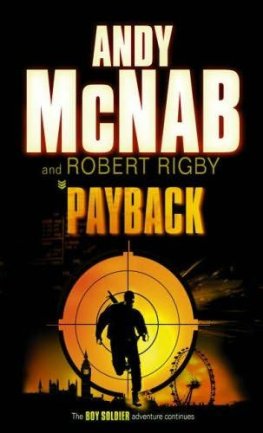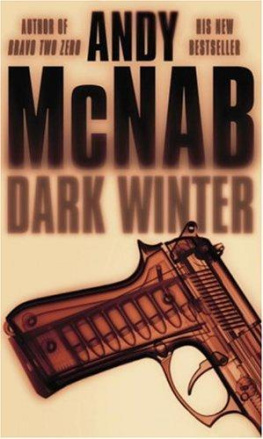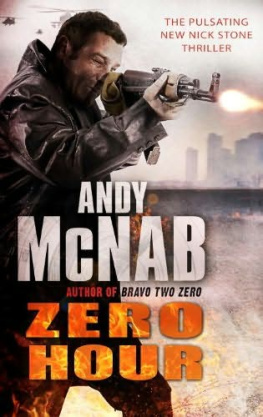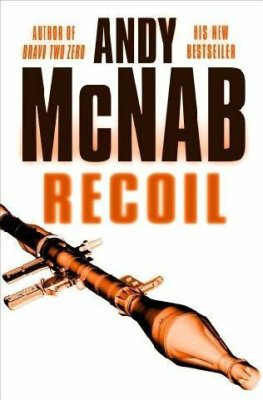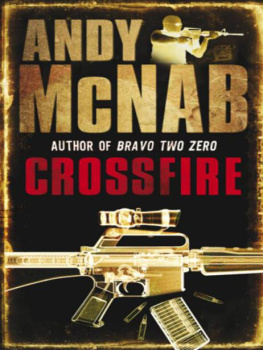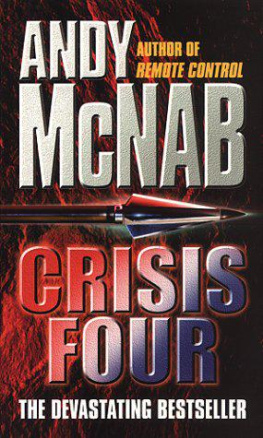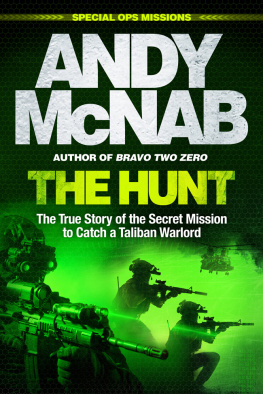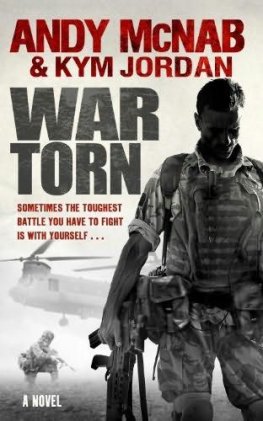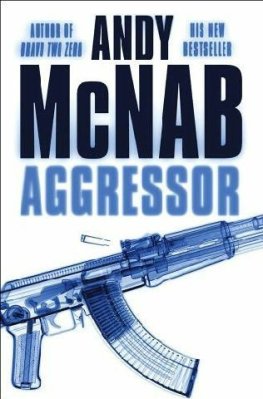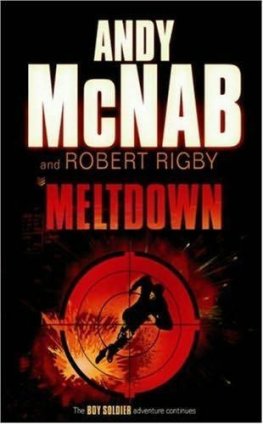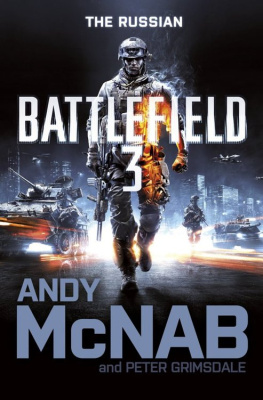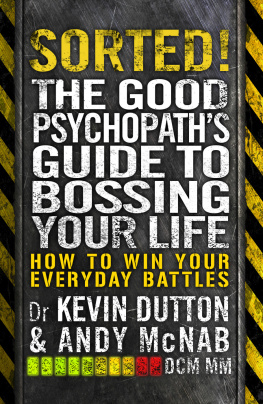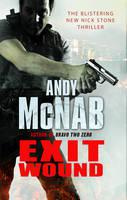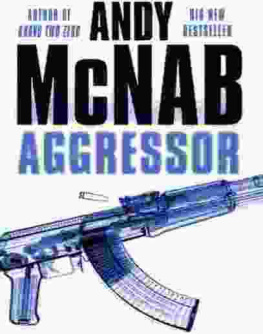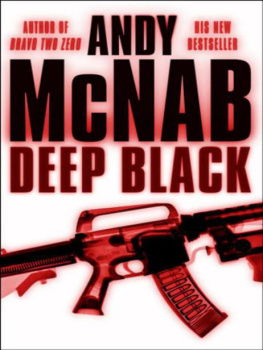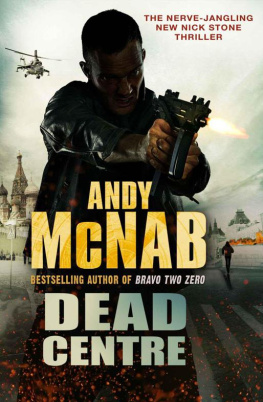Andy McNab - Payback
Here you can read online Andy McNab - Payback full text of the book (entire story) in english for free. Download pdf and epub, get meaning, cover and reviews about this ebook. genre: Detective and thriller. Description of the work, (preface) as well as reviews are available. Best literature library LitArk.com created for fans of good reading and offers a wide selection of genres:
Romance novel
Science fiction
Adventure
Detective
Science
History
Home and family
Prose
Art
Politics
Computer
Non-fiction
Religion
Business
Children
Humor
Choose a favorite category and find really read worthwhile books. Enjoy immersion in the world of imagination, feel the emotions of the characters or learn something new for yourself, make an fascinating discovery.
- Book:Payback
- Author:
- Genre:
- Rating:5 / 5
- Favourites:Add to favourites
- Your mark:
- 100
- 1
- 2
- 3
- 4
- 5
Payback: summary, description and annotation
We offer to read an annotation, description, summary or preface (depends on what the author of the book "Payback" wrote himself). If you haven't found the necessary information about the book — write in the comments, we will try to find it.
Payback — read online for free the complete book (whole text) full work
Below is the text of the book, divided by pages. System saving the place of the last page read, allows you to conveniently read the book "Payback" online for free, without having to search again every time where you left off. Put a bookmark, and you can go to the page where you finished reading at any time.
Font size:
Interval:
Bookmark:
Andy McNab
Payback
Robert Rigby
1
Big Ben struck midday as he walked through Parliament Square. The spring sun was warm, almost hot, but he kept his brand-new puffa jacket zipped up to the neck. A police car siren sounded, and he turned to watch the driver skilfully manoeuvre his vehicle through the snarl of traffic and on towards Westminster Bridge.
He was feeling slightly apprehensive, but at the same time elated. At last he was about to do something meaningful, something significant. Waiting at the pedestrian crossing, he smiled and gently squeezed the few twists of green garden twine nestling in the palm of his right hand. For comfort.
As the traffic lights turned to red and the green man flashed on, he crossed with the rest of the crowd waiting at the kerbside. Japanese tourists walked with their camcorders at arms length, watching their screens while filming the imposing, magnificent buildings. Motorbike couriers revved their engines, impatient for the lights to change.
He joined the queue outside St Stephens Entrance, the public access point to the Houses of Parliament. Armed police watched impassively as the line of visitors slowly shuffled towards the wide entrance doors leading to the X-ray machine and the metal detector blocking the corridor about fifteen metres inside the building.
Ahead of him was a small group of young women, some with babies in carriers strapped to their fronts, brandishing leaflets warning of the health hazards created by a newly opened landfill site and chatting animatedly about the imminent meeting with their local MP.
The queue was in a suntrap, and tiny beads of sweat dotted his upper lip, but still he kept his chunky Gap jacket zipped up. He looked smart: his hair was neatly combed, his trousers were immaculately pressed and his black shoes still shone with newness.
A thin trickle of sweat ran down the side of his head as he turned and smiled politely at a group of pensioners who were beginning to line up behind him. The women wore their best dresses and light coats and the men were in blazers, their old regimental insignias sewn onto the breast pocket and their highly polished medals hanging proudly above.
You here for the tour too? asked one of the men, fishing out a letter of invitation from his blazer pocket and unfolding it to reveal the embossed letterhead reading: HOUSE OF COMMONS.
No, he answered softly.
How old are you, son? said the man.
Seventeen.
The man nodded his admiration. Well, its good to see a youngster with an interest in politics, he said. Makes a nice change these days.
Oh, yes, he replied, his fingers caressing the twine in his hand. Im very interested in politics.
He turned back as the queue moved closer to the large doors opening onto the grand corridor, where statues of statesmen through the ages lined both sides. Reporters and visitors were showing their credentials for entering the public areas before placing briefcases and bags on the X-ray machine and then stepping through the detector.
The group of young women was stopped by a whiteshirted security guard and asked about the purpose of their visit. They named their MP and showed their letter of invitation and were allowed to move into the corridor towards the security checks.
The new shoes were pinching slightly, chafing his heels, but nothing could stop his joy as he stepped over the ancient threshold of Parliament, where a security guard was waiting to question him. And what business do you have here today, sir?
He smiled at the security guard and whispered a single word: Martyrdom.
The guard leaned closer. Sorry, sir, what name was that?
He didnt reply, but pulled sharply at the twine that ran up his arm. St Stephens Entrance erupted in a hail of flying glass, shattered statues and broken bodies.
2
BLOODY CARNAGE
The two-word headline was plastered across a photograph filling the entire front and back pages of the Sun.
The graphic picture showed a bewildered and blood-soaked female survivor being helped away from the dust and debris of the shattered St Stephens Entrance by an ashen-faced government minister. They were stepping over the twisted body of one of the victims. The ministers eyes bulged in disbelief; his jacket hung in shreds; one end of the bloodied bandage wrapped around his head dangled down to his shoulder.
Eight further pages were devoted solely to what the newspaper was calling the Parliament Bomb Outrage.
There were photos of fallen masonry, shattered glass, buckled ironwork, the decapitated head of a stone statue, a single shiny black shoe. Heavily armed police officers were pictured manning hastily erected barriers, paramedics rushed towards ambulances with laden stretchers, an exhausted firefighter leaned against a wall with tears streaming down his face, white-suited scene-of-crime officers searched for forensic evidence amidst the chaos and confusion.
There were photos of survivors and photos of the dead. Bodies lying in the dust. Rows of zipped-up body bags.
In the immediate aftermath of the bombing, television and radio news bulletins had suggested the death toll could reach between a hundred and fifty and two hundred, but in the hours that followed, the number of confirmed dead was put at sixty-four. More were still listed as missing and many more were fighting for their lives in hospital.
The suicide bomber had been quickly identified: his student railcard was found five metres from the spot where the bomb had exploded. But the discovery of the railcard, far from explaining the outrage, just added to the mystery. For Zeenan Khan had been no international terrorist or sleeper smuggled in from a terrorist hotbed like Afghanistan or the Middle East to await the order to strike from his masters.
Zeenan had been a seventeen-year-old A-level student from north London, and although he was of Pakistani origin and a Muslim, he had been born and bred in England. He was English. An Arsenal scarf hung over his bed and on the bedroom walls were posters torn from Loaded magazine.
His devastated family were said to be too distressed to speak to the press and had gone into hiding, but they were described by neighbours as being not political and proud to be British.
There were photos of Zeenan in his school uniform. His headmaster was quoted as being shocked and struggling to believe that the bomber could really have been the level-headed student who obtained eight excellent GCSEs and had been working hard for his A levels.
Somehow all the newspapers had managed to find a family portrait: mum, dad, three kids Zeenan the eldest all smiling, happy, proud.
He was just a normal boy, said a neighbour who refused to be named. A quiet lad, said another. Kept himself to himself, but very polite and never in any trouble.
Politicians, community and religious leaders were quoted. Everyone appealed for calm.
But for all the background information, comments and quotes, two vital questions remained unanswered: how had a seventeen-year-old schoolboy made, or obtained, an explosive device reckoned to be identical to those used by extremists in places like Jerusalem and Baghdad? And why had Zeenan Khan, a boy with everything to live for, chosen to step willingly into oblivion?
News of the bombing was dominating newspaper headlines and television news reports around the world. At a roadside between Badajoz and Huelva in southern Spain two builders, Londoners in their twenties, were drinking tea and reading a copy of the Sun printed in Madrid that morning.
Its unbelievable, said Paul as he scanned the pages. It says here he had at least seven kilos of explosives strapped to him. Whats the world coming to when kids no older than young Dean there are blowing themselves to pieces?
Font size:
Interval:
Bookmark:
Similar books «Payback»
Look at similar books to Payback. We have selected literature similar in name and meaning in the hope of providing readers with more options to find new, interesting, not yet read works.
Discussion, reviews of the book Payback and just readers' own opinions. Leave your comments, write what you think about the work, its meaning or the main characters. Specify what exactly you liked and what you didn't like, and why you think so.

